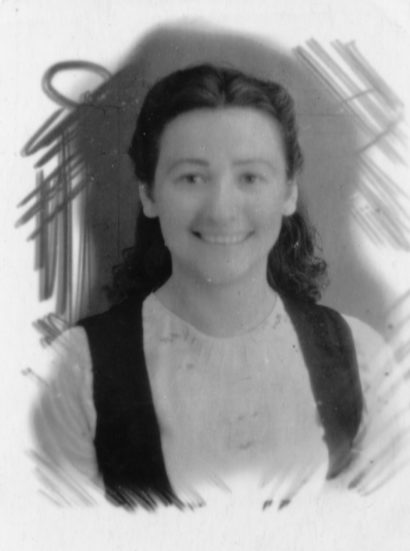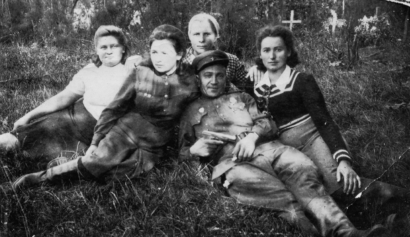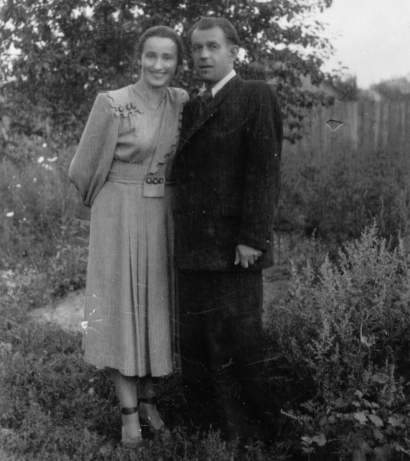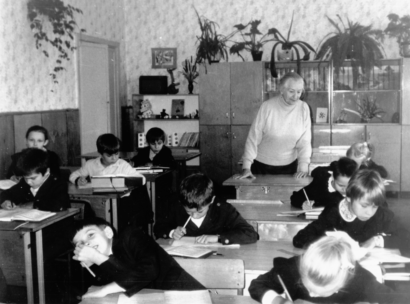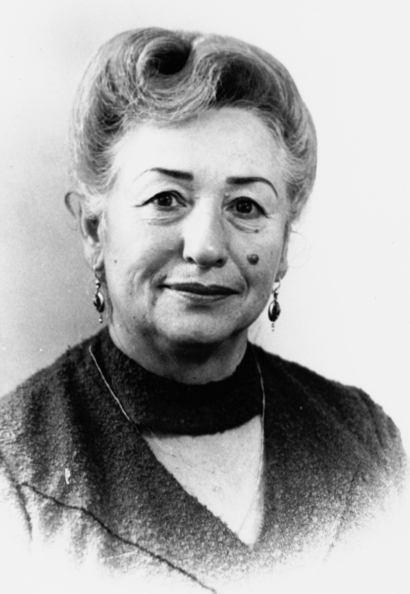Lyubov Yakovlevna Karpovich
born November 1, 1922
![]()
Lyubov Yakovlevna Karpovich, 1946 (private collection)
Help for the Partisans
At the start of the war, Lyubov Yakovlevna Karpovich lived with her mother and four siblingsnear Babruysk, Belarus. Her father had been shot in 1938, allegedly as an enemy of the state. Because one of the children was sick, the family was unable to flee the German occupation. Although Lyubov Karpovitch trained as a schoolteacher, during the war she worked as a cleaner in a pharmacy. With her sister’s help, she supplied medications to partisans.

Lyubov Yakovlevna Karpovich (right) with her parents and sisters, 1931 (private collection)
Lyubov Karpovich’s sister was arrested in 1943; one year later, Karpovitch was also arrested. She was first sent to a jail in Babruysk, and later to a camp in Minsk. In June 1944, she was deported to the Auschwitz-Birkenau concentration camp. The entire transport was mistakenly sent to the gas chamber. However, the Germans noticed the error, and the women were taken back out. Later, when the SS needed workers, they carried out an inspection of the female inmates, examining their hands and teeth for the selection. 500 women were then sent to Mittweida, a Flossenbürg subcamp, among them Lyubov Karpovich. The women were housed in a factory building and put to work as forced laborers for Lorenz AG, a company that made aircraft parts for Messerschmitt. The subcamp was evacuated in mid-April 1945. The women were first sent on foot toward Bohemia. Two days later, they were herded onto cattle cars and transported via Prague to the south. They were finally liberated from the train on May 8th by US troops in the town of Kaplice in southern Bohemia.
![]()
Lyubov Yakovlevna Karpovich (right) with coworkers and friends, Hungary 1945 (private collection)
Before returning home in October 1945, Lyubov Yakovlevna Karpovich spent six months working in a military hospital in Hungary.![]()
Lyubov Yakovlevna Karpovich with her husband, 1948 (private collection)
After her return home, Lyubov Karpovich was initially refused permission to work as a schoolteacher. Because she had been deported to Germany, she was accused by the Communist authorities of being a “class enemy”. Several years later, she was finally granted permission to work as a teacher in Minsk. Due to lasting effects of her time in the concentration camp, Lyubov Karpovich never had children herself: “I obtained medical treatment, but it didn’t help.” She died in December 2006.
![]()
Lyubov Yakovlevna Karpovich with some schoolchildren, Minsk 1989 (private collection)
![]()
Lyubov Yakovlevna Karpovich, 2000 (private collection)
